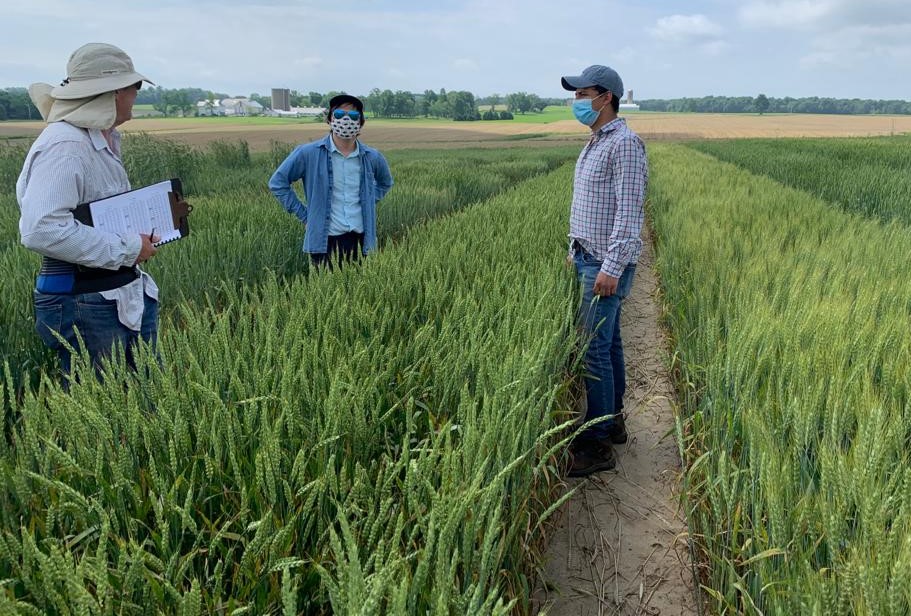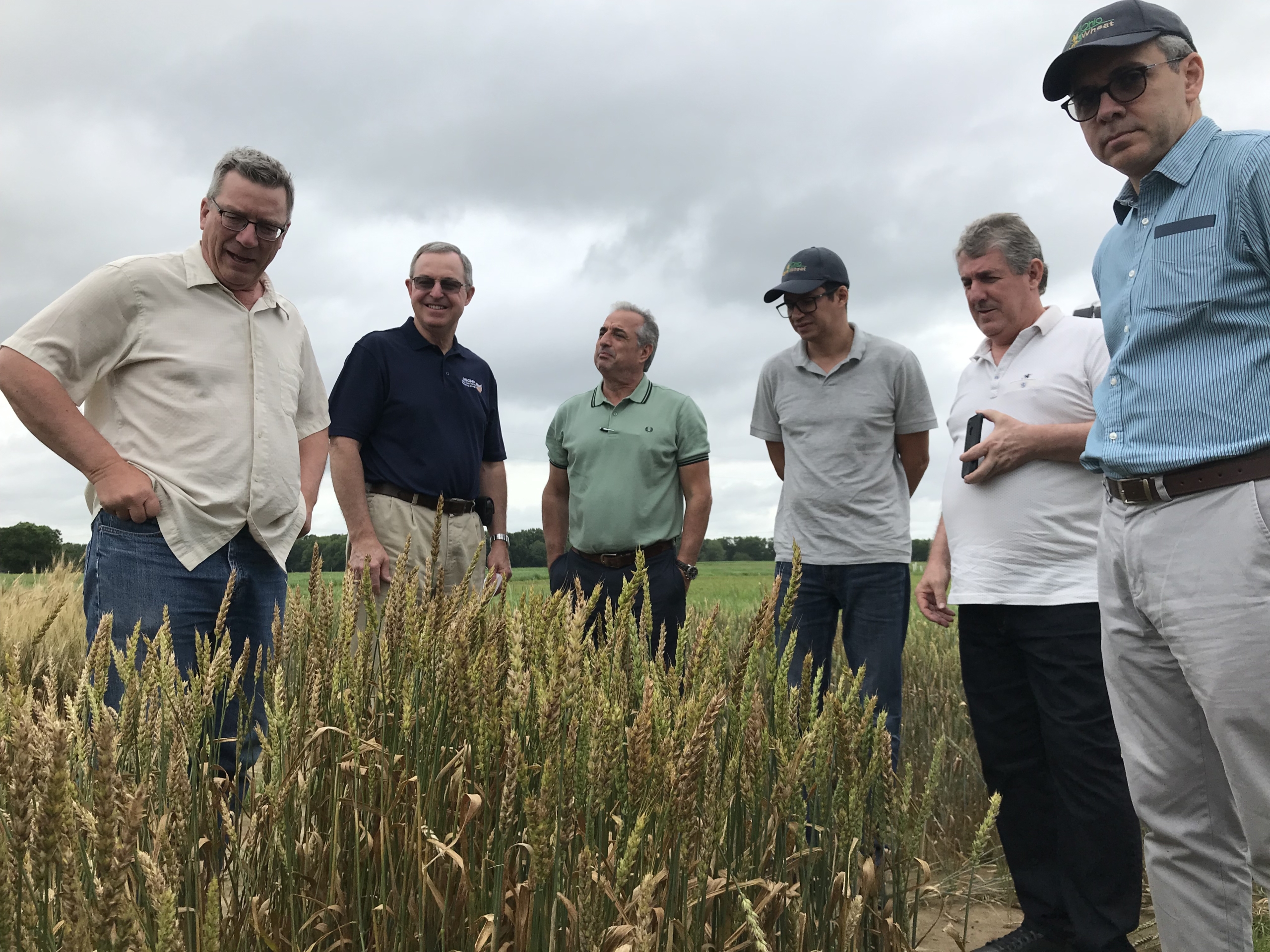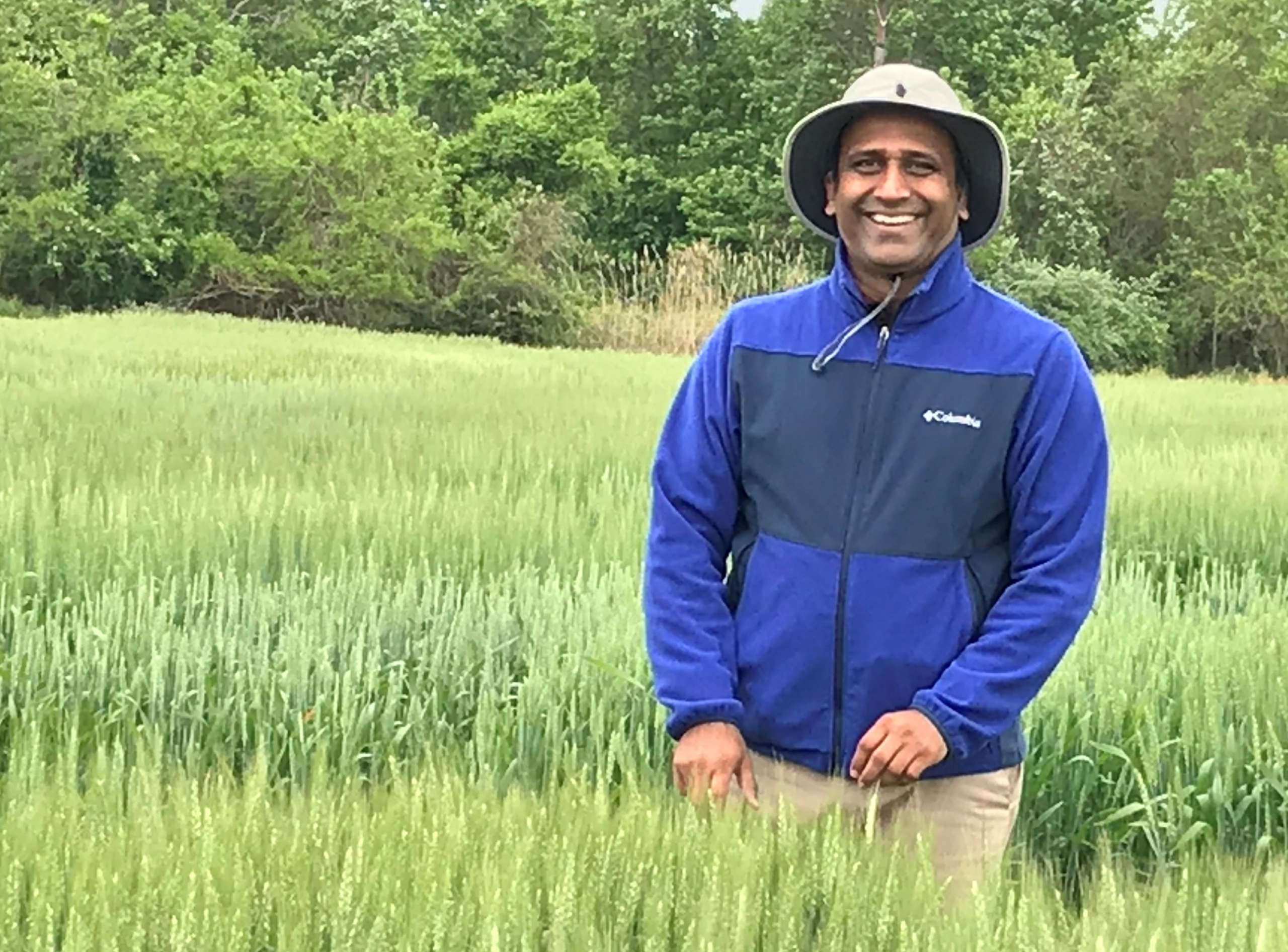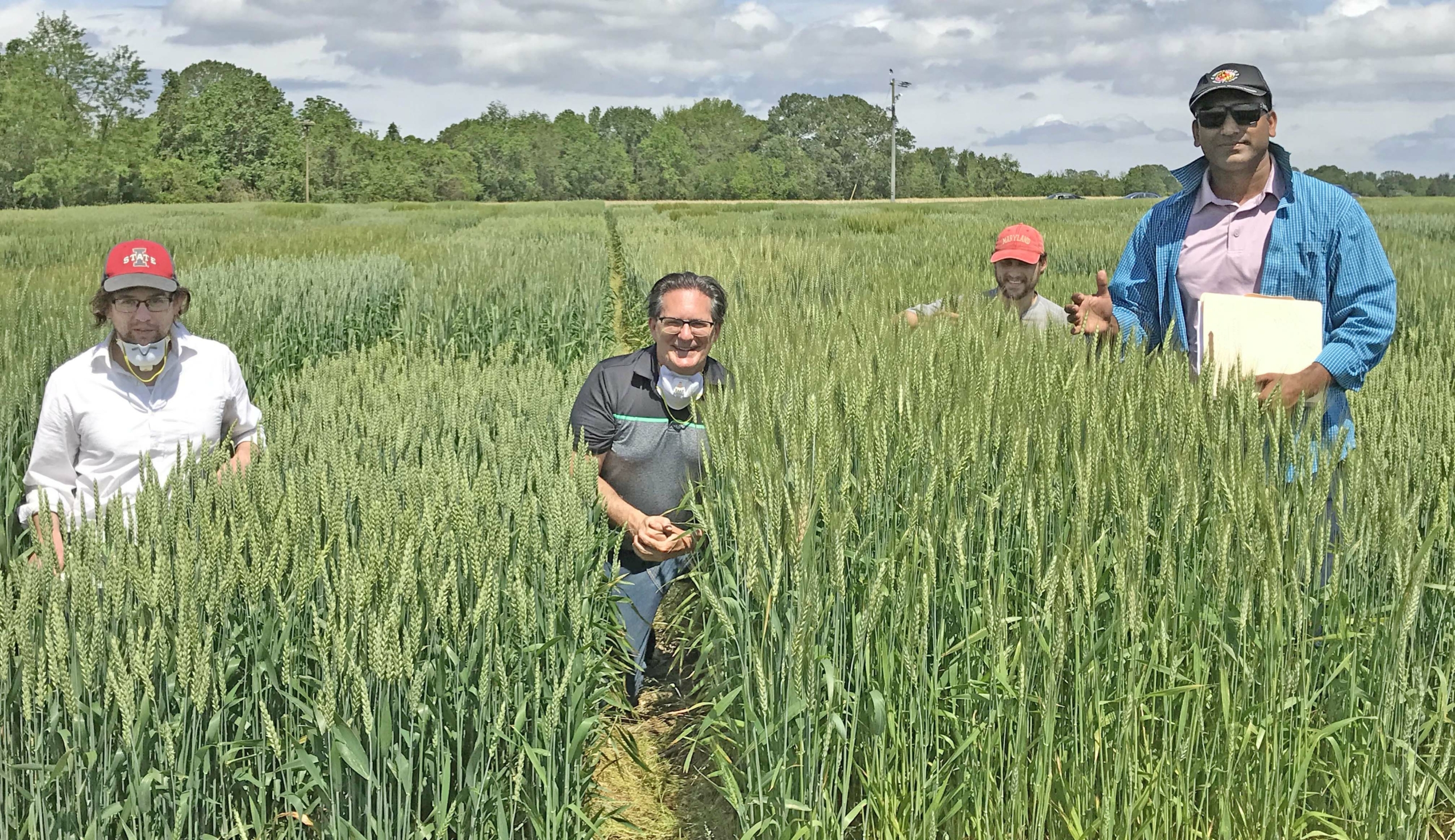Throughout 2021, the U.S. Wheat Associates (USW) Wheat Letter is featuring the many stories of the people, processes and passions that go into producing and delivering high-quality U.S. wheat to the world. Our focus will be on quality that starts with dedicated private and public wheat breeding programs, is fostered by hard-working farm families, is maintained by grain handlers and observed in hundreds of wholesome, nutritious wheat foods.
U.S. wheat researchers and breeders work tirelessly to develop wheat varieties that meet the highest of standards, to meet our customers’ end-user needs and to help farm families thrive.
The journey of wheat to food tables around the world begins in public and commercial breeding programs. The process of continually improving varieties for farmers to grow, feed into the supply chain and, ultimately, end up in food products around the world.
Many such breeding programs across the United States are necessary because of the widely varied production constraints and wheat classes adapted for different regions. An estimated 65% of all U.S. wheat varieties across six distinct classes were developed by public university breeding programs, funded in part by state wheat commissions, royalties from the sale of public varieties, and the USDA Agricultural Research Service (ARS).
In this post, Wheat Letter offers broad information about public university wheat breeding programs in Ohio and Maryland, with references to programs in other U.S. states growing soft red winter (SRW) wheat. Future posts will cover breeding programs in other states.
Ohio State University
Dr. Clay Sneller, Professor, Horticulture and Crop Science at Ohio State University (OSU), has developed many new SRW cultivars in his academic career. With a focus on traditional breeding and genomic assisted breeding, Dr. Sneller works to improve yield potential, end-use quality and disease resistance. Teaming with cereals plant pathologist Dr. Pierce Paul, this OSU team is developing new SRW varieties that are resistant to the foliar wheat disease fusarium head blight (scab). The OSU program is also researching new breeding methods and ways to leverage resources across the University programs serving the Midwest.

Research stations managed by OSU’s Ohio Agricultural Research and Development Center conduct trials of new and existing SRW cultivars to get the best genetics to growers. In addition, the USDA ARS Soft Wheat Quality Laboratory in Wooster, Ohio, led by Dr. Byung Kee Baik, conducts end-quality testing of SRW varieties from OSU and other sources. The Ohio Seed Improvement Association certifies promising OSU SRW varieties and Ohio Foundation Seed grows out seed supplies. OSU also licenses new genetics to private seed companies for use by farmers in Ohio and surrounding states. OSU receives sales royalties that help fund future research and breeding.
It takes a large crew to manage a public breeding program. In the photo above, graduate students and staff from the OSU team under Dr. Sneller have just finished harvesting, cleaning and collecting seed from dozens of wheat trial plots.
The Ohio Small Grains Checkoff (OSGC) supports Dr. Sneller’s work and other OSU wheat production research. Dr. Sneller has also taken part in USW export market development activities. In 2019, for example, Dr. Sneller, Dr. Baik and OSGC shared information about SRW breeding and quality improvement with a visiting team of Brazilian flour milling managers sponsored by USW.

University of Maryland
Wheat researchers around the world are paying attention to the work of Dr. Vijay Tiwari, Assistant Professor, University of Maryland (UMD), College of Agriculture and Natural Resources. Dr. Tiwari recently received the Leadership Award from the International Wheat Genome Sequencing Consortium (IWGSC), representing scientists across 70 countries dedicated to advancing wheat genomics and the production of high-quality wheat. UMD noted that Tiwari has elevated UMD’s reputation in wheat genomics and “revitalized the Maryland Small Grains Breeding and Genetics (MSGBG) program. By bringing together other experts across plant science to create a unique collaboration, the program is on the verge of rolling out new varieties of wheat to serve the state of Maryland and Mid-Atlantic region while helping combat global hunger.”

In his breeding work, Dr. Tiwari draws from a UMD ”gene bank” of more than 30,000 different small grain germplasms and collaborates with MSGBG teammates including plant pathologist Dr. Nidhi Rawat, Assistant Professor of Plant Science Dr. Yiping Qi and Extension Agronomist Nicole Fiorellino. The program is actively working with the Maryland Crop Improvement Association (MCIA), the Maryland Grain Producers Utilization Board (MGPUB) and the Maryland Department of Agriculture to develop and commercialize new SRW varieties. MCIA manages seed production and distribution to farmers through licensed private seed companies in Maryland as well as Virginia, Pennsylvania and Delaware. As in other public breeding programs, royalties from the sale of UMD varieties help fund more research, such as Dr. Tiwari’s work developing hard red winter (HRW) wheat varieties adapted to the U.S. Mid-Atlantic region. MGPUB, a USW member state wheat commission, also funds other UMD projects focused on wheat quality and production.

Other Public SRW Breeding Programs
Farmers across the eastern one-third of the United States grow SRW wheat developed by other public breeding programs, including at these universities:
- Virginia Tech;
- Michigan State University;
- University of Illinois;
- Purdue University;
- University of Kentucky;
- University of Tennessee;
- University of Arkansas;
- North Carolina State University;
- Louisiana State University;
- University of Georgia;
- Clemson University;
- Cornell University.
Read about other U.S. wheat public breeding programs:
Programs Serving Northern Plains Producers
Programs Serving Southern and Central Plains Producers
Programs Serving West Coast Producers
Read about other U.S. wheat commercial breeding programs:
BASF Corp. and Corteva
AgriPro and WestBred
Stories covering additional programs will be published soon.


